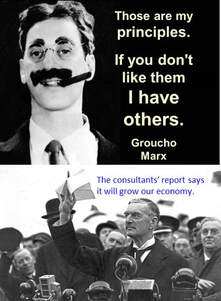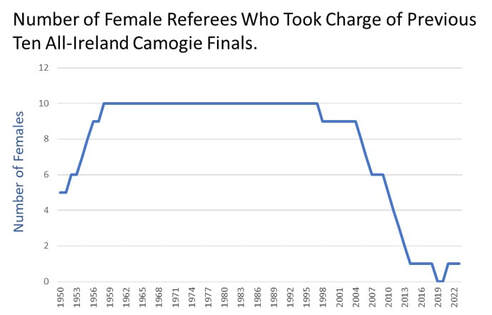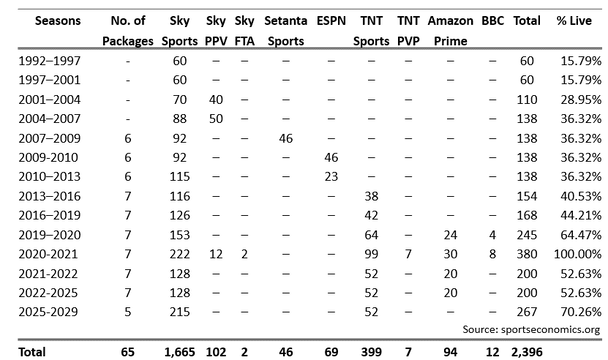We would like to wish all our readers a very Happy Christmas and best wishes for 2024.
|
Our blog will now take its customary Christmas break and return on Monday the 29th of January 2024.
We would like to wish all our readers a very Happy Christmas and best wishes for 2024. By Robbie Butler
This week the British Horse Racing Authority issued guidance on potential new rules in the sport - which will now go for stakeholder consideration - to prevent further concentration in the sport. While there have always been trainers and owners that dominated the sport through the centuries, the last number of decades have probably witnessed the emergence of "super trainers" that have hundreds of horses in training. The proposed rule change will seek to limit the number of horses any trainer can run in high-profile races. The logic behind this is straightforward. Racing authorities are fearful of an erosion of competitive balance in the sport - at a training level at least - where an elite group of trainers dominates the sport. In April this year I highlighted this in an Irish context. The piece presents data on Irish trainer prizemoney since 2014 and says: "For the 16th year in a row W.P. Mullins will be crowned Champion Irish National Hunt Trainer. What a remarkable feat for the Carlow man who now holds legendary status in Irish racing circles. As Mullins receives his award, Cullentra based trainer Gordon Elliott will finish as runner-up for the 11th year in a row. Such is the dominance of these "big two" that many other trainers struggle to keep horses in training." This fear must now be realised by authorities in Great Britain. In order to prevent this, limiting the entry any single trainer can make to four in elite handicaps may encourage owners to seek the services of other trainers, with a smaller number of horses. For example, at the Cheltenham Festival in 2023 Gordon Elliott entered seven horses in the Coral Cup Handicap. This would not be permitted under the new rules and, in theory at least, the three unlucky owners not entered in the race might seek to transfer their horses elsewhere. Elliott has already spoken of the dangers of introducing this new rule and the impact it could have on ownership rates and field sizes. Eddie O'Leary of Gigginstown Stud was more harsh in his criticism and noted that the rules would be unworkable. The owner suggested he would simply transfer the ownership of his horses the day before a race in order for them to run. Should the BHA continue down this route, they need to think carefully about the potential impact of any capping on trainers and the potential unintended consequences. Sometimes, it's best to do nothing. By John Considine Recently I posted about the lack of female referees at the highest level of gaelic games (here). Specifically, I looked at the games where the players were female. Only one female referee in the 2023 senior camogie championship. A colleague pointed out to me that this was not always the case. During the second half of the 20th century, the most important game of the year was almost always controlled by a female. This is illustrated in the picture below. For the 10 years before 1950 there were 5 females in charge of the previous 10 All-Ireland finals. By 1960 that figure was 10 out of 10. Very little changes for the remainder of the century. Then there is a rapid decline. The Camogie Association celebrated its centenary in 2004. From 2005, there is a radical change. Males are allocated the All-Ireland finals in most of the subsequent years. Liz Dempsey is a lone figure. What has happened?
By John Considine  It is funny to see Jon Rahm rationalising his move to LIV Golf by saying that it is the innovation that attracted him. Earlier in the week the PGA rolled out their big hitters to explain why they were rolling back on golf ball development. The rationalisation included that this would help the environment by reducing the length of golf course and the associated need for water. Maybe the manure that these people are spreading might be directed to fertilising the golf courses. These questionable rationalisations are the stock in trade of other sports, other businesses, governments, and us as individuals. The basic line is that if you give us something then it will benefit society. The currency in which we denominate the claim is frequently financial – regularly accompanied by a dodgy economic evaluation report to justify the claims. Increasingly, the benefits are listed as improving the environment or diversity targets. These claims can be widely inconsistent at a point in time or over time. How many Premier League player who wore rainbow laces last weekend will end up playing in leagues where they would not dare to wear such rainbows? Consider the outrage over Jordan Henderson’s summer move. Economics can provide an antidote for the outrage. An economist is unlikely to be outraged, surprised, or disappointed with the decisions of Jon Rahm or Jordan Henderson. They would start by presuming that they made the best decision for themselves. They would discount, but not necessarily ignore, some of the cheap talk. I would like to think that a well-educated economist has developed a good nose for identifying bull. There is nothing wrong with a healthy dose of scepticism. That is not to say that economics does not have its own issues. For much of the 21st century, economics has been criticised, from outside and inside the profession, for its use of rational (wo)man as a way of thinking about human decisions. I have often wondered if a more appropriate person for our thinking should be the rational(e) man or woman. When it comes to our decisions, we use our faculties to both reason ex-ante and rationalise ex-post. I’m sure Jon Rahm considered the costs and benefits of his decision before making it and I’m sure he did something similar when considering the narrative to spin about the same decision. By Robbie Butler This week the 2025-29 domestic broadcasting deal for the English Premier League was revealed. Sky Sports continue to dominate the agreement - winning 4 of the 5 packages on offer - with the 5th package going to TNT Sports (formerly BT Sports). While the sums involved and the number of games to be broadcast live dominated the media coverage, it was interesting to note that the market has moved back to a duopoly. This may be good news for customers who in recent years had to increase the number of subscriptions they had to have to watch all live games from 1 to 2 to 3. The exit of Amazon Prime means that just two subscriptions are now required. The data below is an extension of our 2019 paper in the Journal of Sports Economics. In the paper, we demonstrate how "competition" - or the allusion of same - caused prices to rise from 2007 when Sky Sports' monopoly of the English Premier League ended. The table below shows that the 2025-29 agreement is the first time there are only two broadcasters since the 2018-19 season. During the 2020-21 season, when all games were shown live on television due to the pandemic, there were 7 different ways to view content. These ranged from free-to-air (FTA) via the BBC and Sky to subscription based services and pay-per-view.
The 2022-25 season saw a return to normality with just Sky Sports, TNT Sports and Amazon Prime. However, from August 2025, three will become two. One has to wonder what will happen from 2029. Will we return to a monopoly? Could the games all be streamed live via one provider? Might it even be done in-house and remove the need for 3rd party broadcasters? By John Considine  During recent years, the name Freiburg might have come to the attention of those interested in football and economics. The German football team with the same name are currently top of their Europa League group and will play West Ham on December 14th to determine who wins the group. This time last year, during the FIFA World Cup, the team were second in the Bundesliga. Mainstream economists would have come across the name over the last decade because it is the place most associated with Ordoliberalism. President Biden’s Special Assistant on Competition Policy is a fan. In his book The Curse of Bigness, Tim Wu devotes a few pages to the lessons that 21st century competition policy can learn from the ideas that originated in Freiburg. In outlining his philosophy, Wu uses the occasional sporting metaphor. In another publication he says “in leagues like the NFL or sports like boxing there has long been structural tools for protecting competition or ‘competitive parity’.“ Competition policy has obvious links to sports economics. The title of Wu’s book is a reference to the words of a US Supreme Court Justices from the period between the two world wars of the 20th century. Louis Brandeis is the legal scholar who’s name is now used to describe the ideas of Tim Wu and others under the heading Neo-Brandeis. It was during the same period that legal scholars and economists came together in Freiburg to develop the ideas that have become known as Ordoliberalism or the Freiburg School. Unfortunately, their warning about the implications of the concentration of private power were too close to the mark. There are obvious similarities between the ideas that govern the way we think about competition in the business and sporting spheres. I wonder what the scholars in 1930s Freiburg would think about 21st century competitive balance in the Bundesliga. |
Archives
March 2024
About
This website was founded in July 2013. Categories
All
|


 RSS Feed
RSS Feed